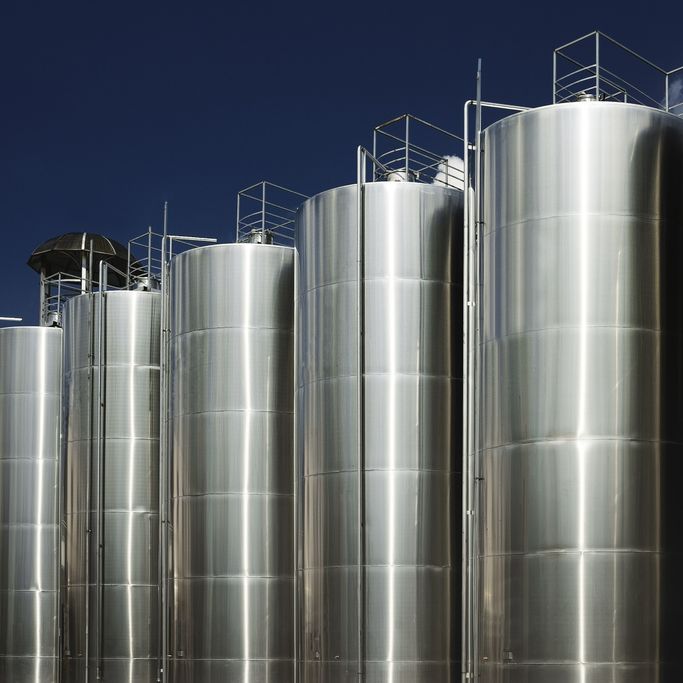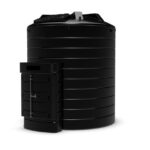The oil and gas industry has seen many advances in technology in recent years, and storage vessels have been no exception. Today’s storage vessels are smarter and more efficient than ever before, thanks to advances in everything from smart monitoring to leak detection.
For tank farms and other storage facilities, these advances can mean big savings in time, money, and resources. Smart monitoring systems can help operators keep track of inventory levels and potential issues, while leak detection systems can help prevent costly and environmentally damaging spills.
With so many benefits, it’s no wonder that more and more storage facilities are investing in these cutting-edge technologies.
Smart Monitoring Technologies
Innovations in Storage Vessels: From Smart Monitoring to Leak Detection
Smart monitoring technologies are playing an increasingly important role in the safe and efficient operation of storage vessels. By constantly monitoring the condition of the vessel and its contents, these systems can provide early warning of potential problems, allowing operators to take corrective action before a incident occurs.
One of the most important applications of smart monitoring is in the detection of leaks. By continuously monitoring the pressure and temperature within the vessel, as well as the level of liquid in the tank, leaks can be detected quickly and repaired before they cause significant damage.
Another important use for smart monitoring systems is in the management of inventory. By constantly tracking the level of liquid in the tank, operators can ensure that they always have enough product on hand to meet customer demand. This can help to avoid costly shortages and disruptions to operations.
Finally, smart monitoring systems can also be used to monitor the performance of the storage vessel itself. By tracking parameters such as temperature and pressure, these systems can identify potential problems with the vessel and its contents. This information can then be used to improve the design of future storage vessels, or to make modifications to existing vessels to improve their performance.
Advanced Materials for Storage Vessels
Most storage vessels are made of metal, typically steel, but in recent years there have been advances in the materials used for storage vessels. New composite materials, such as fiber-reinforced plastic, are being used to make storage vessels that are lighter and more resistant to corrosion. These materials are also being used to make vessels that can withstand higher temperatures and pressures.
Fiber-reinforced plastic is made by combining synthetic fibers with a resin to create a material that is strong and lightweight. This material is often used to make storage vessels that are used in corrosive environments, such as those that contain chemicals or salt water.
Composite materials are also being used to make vessels that can withstand higher temperatures and pressures. These materials are made by combining several different materials, such as metals, ceramics, and polymers. By combining these materials, it is possible to create a storage vessel that is stronger and more resistant to heat and pressure than one made from a single material.
The use of advanced materials for storage vessels has led to the development of more efficient and durable vessels. These vessels are often used in industries that require the storage of hazardous materials, such as the chemical and petroleum industries.
Leak Detection Systems and Sensors
Leak detection systems help identify when a tank or pipeline is leaking, which can avoid costly repairs and environmental damage. There are several different types of leak detection systems and sensors available, each with its own advantages and disadvantages.
acoustic leak detection systems use microphones to listen for the sound of leaks. They can be used to detect leaks in both above-ground and underground tanks and pipelines. However, they are not effective in detecting very small leaks, and can be affected by background noise.
optical leak detection systems use infrared or ultraviolet light to look for leaks. These systems can detect very small leaks, but can be expensive to purchase and maintain.
pressure-based leak detection systems measure the pressure inside a tank or pipeline. These systems can be used to detect both small and large leaks, but can be affected by things like changes in temperature or elevation.
mass-balance leak detection systems weigh the contents of a tank or pipeline over time. These systems are very accurate, but can be expensive to install and maintain.
Each type of leak detection system has its own strengths and weaknesses, and there is no one-size-fits-all solution. The best leak detection system for a particular application will depend on the size and type of leak being detected, the environment in which the system will be used, and the budget available.
Remote Monitoring and Data Analytics
advances in technology have transformed the way we live, work, and play. They have also had a major impact on the way businesses operate, including those in the storage vessel industry. One of the most significant changes has been the introduction of remote monitoring and data analytics.
Remote monitoring is the use of technology to track and monitor the condition of storage vessels remotely. This can be done using a variety of methods, including sensors, RFID tags, and GPS tracking. Data analytics is the process of analyzing data to extract valuable insights. This can be used to improve the performance of storage vessels and to detect and prevent problems.
Remote monitoring and data analytics offer a number of benefits to businesses that use storage vessels. They can help to reduce costs, improve efficiency, and prevent problems. They can also provide valuable data that can be used to improve the design of storage vessels and to develop new and improved products and services.
Sustainable and Eco-Friendly Storage Solutions
The petroleum industry is under pressure to find more sustainable and eco-friendly ways to store oil and gas. One way they are doing this is by developing new storage vessels that are more efficient and less likely to leak.
One example of a sustainable and eco-friendly storage solution is the floating roof tank. Floating roof tanks are designed to minimize evaporative losses of petroleum products and prevent water contamination. They have a floating roof that floats on the surface of the product, and an external seal that contains any leaks.
Another example of a sustainable storage solution is the double-wall tank. Double-wall tanks have an inner and outer wall, with a space in between for insulation. This helps to keep the product at a constant temperature, which reduces evaporation and corrosion.
The petroleum industry is also investing in new technologies for monitoring and detecting leaks in storage vessels. One example is the use of satellite imagery to detect leaks. Satellite images can be used to identify areas of oil slicks or other signs of a leak.
Leak detection systems are also being developed that can quickly identify and isolate leaks in storage vessels. These systems use sensors to detect pressure changes or leaks in the vessel, and then automatically shut off the flow of product to prevent further leakage.
The development of more sustainable and eco-friendly storage solutions is an important part of the oil and gas industry’s efforts to reduce its environmental impact. By investing in new technologies and using more efficient storage vessels, the industry can help to protect the environment and enhance its own sustainability.
With the ever-growing demand for oil and gas, and the consequent need to store these materials, it is clear that the storage vessels used must become more sophisticated. In order to meet this demand, manufacturers have developed new storage vessels that feature smart monitoring and leak detection. These new vessels are more expensive than traditional storage vessels, but they offer a number of benefits that make them worth the investment.
smart monitoring and leak detection systems make it possible to detect and fix potential problems before they result in a disaster.
These new vessels are more expensive than traditional storage vessels, but they offer a number of benefits that make them worth the investment.

 Industrial and Agricultural Uses of Storage Tanks: A Comprehensive Guide
Industrial and Agricultural Uses of Storage Tanks: A Comprehensive Guide